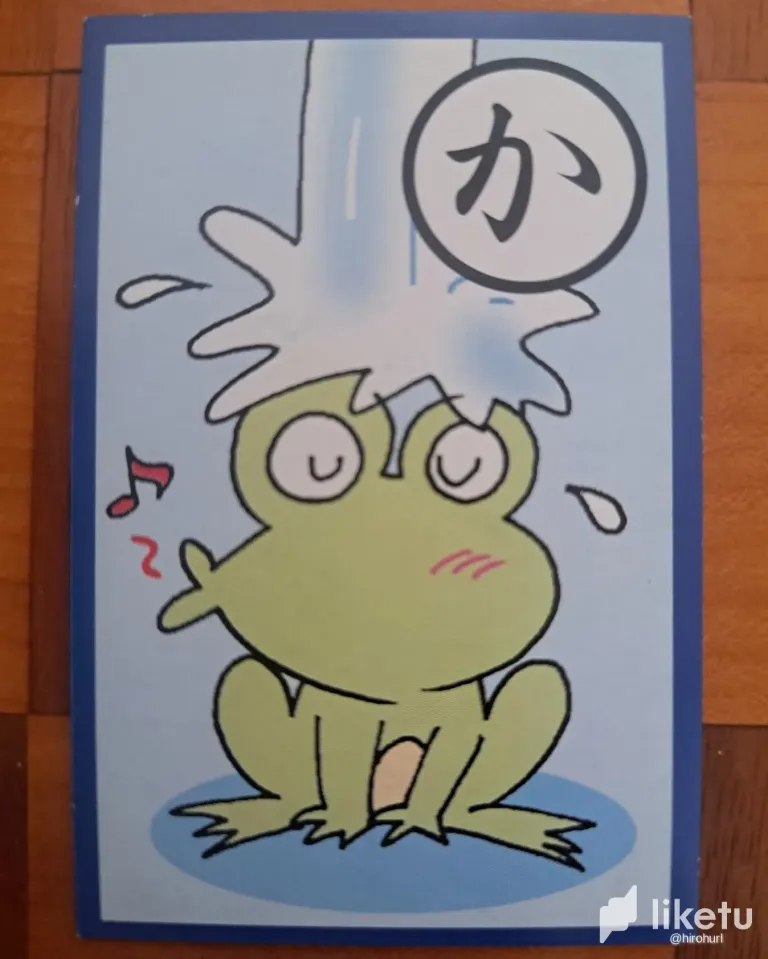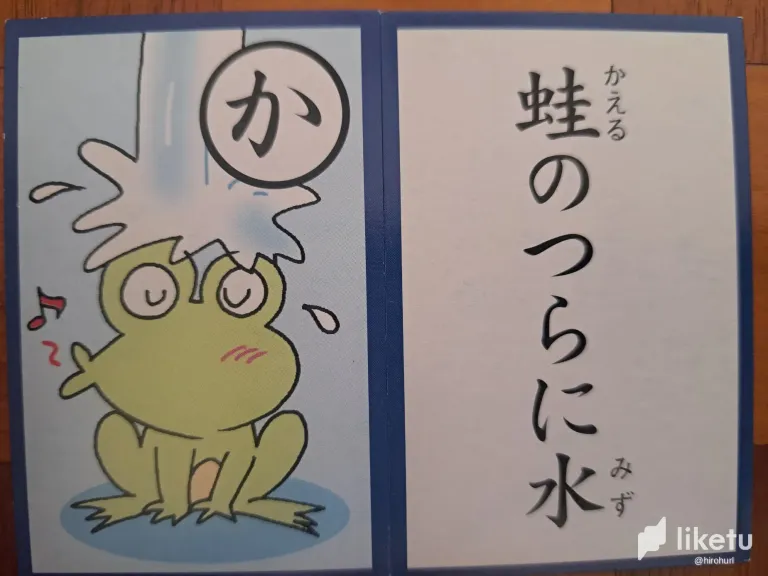

Today's Japanese proverb is taken from my cheap and cheerful Daiso (dime shop) Iroha Karuta deck. It is completely different from the 14th proverb on my other deck that I talked about in my previous post here:
https://hive.blog/hive-147010/@hirohurl/iroha-karuta-14-1-send-a-callow-youth-away-on-a-journey
The only thing they have in common is that they share the same opening syllable, "Ka," and so appear in 14th place in different Iroha Karuta decks. Far from sending someone away on a journey in order to be changed by experience, today's proverb is all about remaining unchanged - or unmoved - in spite of whatever may be thrown at you.
Here's the original Japanese proverb:
蛙の面に水
kaeru no tsura ni mizu
Let's break it down into its constituent parts:
- kaeru = frog
- no = genetive "of" or -'s
- tsura = face, surface
- ni = on/in (marks the location or target of the action)
- mizu = water
Translation
This proverb does not pose any difficulties in translation. It is not the most subtle of proverbs:
Water in a frog's face!
One option, however, would be to translate the proverb according to the principle of "dynamic equivalence" by finding an equivalent proverb in English and using that. You can probably guess what the equivalent English proverb would be...
Water off a duck's back.
Yup, our frog really doesn't give a damn about water in his face any more than a duck cares about water on her back.
That's why the frog in the Daiso illustration is sat there unperturbed, whistling a merry tune and taking no notice of the torrent of water pouring onto his pate.
I checked ChatGPT and Google Translate.
ChatGPT's Translation
Water on a frog's face.
Our only disagreement is in the choice of preposition: "in" or "on"? I feel that "in" is more suitable for "face" whereas "on" would be better if the noun were "head." I grant that the Daiso illustration has the water falling ON the frog's HEAD rather than in his face, however the kanji, 面 "tsura," refers to one's face. The kanji for "head" is 頭 "atama," so I'm sticking with "in a frog's face."
Google Translate's Translation
Google Translate managed to add another twist to the translation:
Water on the frog's face.
Japanese does not use articles such as "a" or "the" so the translator has to decide whether or not to use an article and if so, which one to use. Google Translate opted for the direct article, which changes the nuance of the proverb from,
Water on any frog's face
to
Water on that specific frog's face.
Again, I think my translation is better because proverbs tend to be about general truths, not specific cases.
So, I'm sticking with...
Water in a frog's face
and it's all the same to me if you agree or disagree. 🦆
Cheers!
David Hurley
#InspiredFocus
For the best experience view this post on Liketu
 )
)